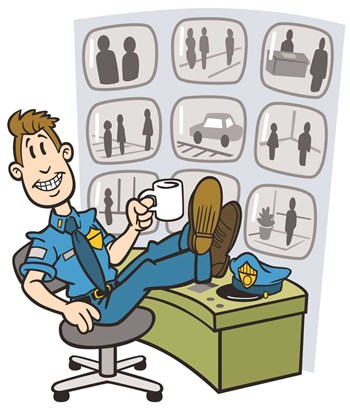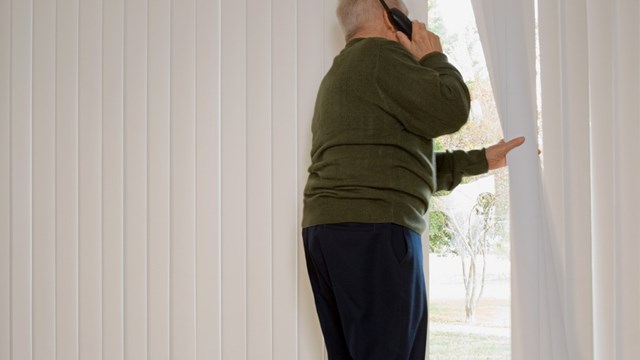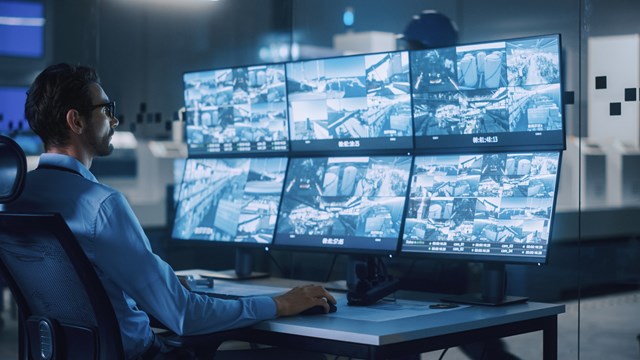
There are many different factors that prospective condominium owners contemplate when looking to buy a unit. Aesthetics, price, and location are important, for sure. But perhaps the most critical factors of all are the safety of the building and the neighborhood it’s in.
Despite the country's urban areas reporting fewer serious crimes in recent years, it would be naïve—not to mention irresponsible—not to take proper steps to safeguard one's home and loved ones. To that end, most condominium associations and boards of directors employ some sort of surveillance on their properties to keep watch over them in a visible way, and give residents a sense of security. Unit owners can expect to see those ubiquitous cameras in hallways, in garages or parking areas, near elevators, and at common areas like pools, tennis courts, or other amenities.
Do Cameras Really Provide Security?
Fundamentally, cameras are just mechanical eyes. While they may deter crime to some degree, when it comes to security, their prime purpose is to record happenings in an environment for use later by condominium boards and hired security staff if a problem is reported.
That’s the catch. Whether or not there are security stations and guards on a property, it’s rare that someone is sitting there watching the surveillance video feed 24 hours a day, seven days a week. Some attorneys caution condominium owners that having cameras on site doesn’t mean that the environment is safer than if they were absent.
“People [take for granted] that they're in a safe environment,” says Michael Hyman, a shareholder attorney at the law firm of Siegfried Rivera Hyman Lerner De La Torre Mars & Sobel, P.A. in Coral Gables, “and then if something happens, and the recording devices don't work, it can create a greater liability for the association than if they'd had no cameras at all. But security cameras don't really stop crime—after an incident, they're there to verify and investigate what happened.”
So the questions remain: Does having numerous cameras around actually make a difference? Do management companies find that properties with a greater security presence experience a drop in crime?
The short answer is yes. If unit owners and visitors see cameras around the property, then there is the immediate assumption that there is someone, somewhere, monitoring the feed—and that it's probably best to mind one's Ps and Qs.
Reasonable Care
So while the sight of an unblinking mechanical eye can discourage some types of crime, small condominium associations beware; if you’re going to put cameras in place and provide residents with that comforting feeling of security, then it is your duty to maintain those cameras with reasonable care.
“You're not required by law [to install cameras], but once you do, you're required to do so in a way that's responsible,” says Hyman. “So what if someone's attacked, and at the time those security cameras are down? Does the association owe some responsibility that the cameras are working so that it can identify the people who hurt or damaged or stole from the residents in the building? That's where you get these tensions.”
While condominiums are not required to have cameras on site, if the community is in a high-crime area, management should want to know what’s going on so they can put a halt to any mischief. Put simply, residents don’t want to live in a high-crime area, and managers want people to occupy their homes in peace.
“If you don't have a video camera system and there's been no previous history of vandalism, no threats, or a lot crime or assaults taking place on the property, you might not have any liability for the first couple instances,” says Pennie Mays, an attorney at the law firm of Glazer & Associates, P.A. in the Fort Lauderdale office. “But if it continues to happen, and the membership and the board believe that they should put in surveillance systems to serve as a deterrent, then, of course, they should do so. But, there's no statutory requirement.”
But once the idea of security cameras is introduced to an association, who has the power to install them, and how will the association pay for it? It all depends on how the HOA's documents are phrased. “If the declaration is broad enough you can incorporate the cameras as part of the protection duties, from vandalism and crime,” says Mays. “But if their declaration doesn't give them a broad enough duty, they would have to get a 75% vote from the membership on whether or not to put the surveillance system in. And it depends on the size of the building, because if we're talking about a 10- or 11-unit condominium it might not be as costly, but if it's a high rise, you're getting into a very high-cost endeavor.”
Where You’re Being Watched
In addition to fundamental security, condominium owners also have an expectation of privacy. That means that when you’re inside the comfort of your own home, you don’t want or expect to have your board, neighbors, or association staff breathing down your neck, monitoring your movements, or otherwise invading your space.
This expectation of privacy leads to restrictions as to where cameras can and cannot be placed, says Carlos Martin, a senior attorney with the law firm of Becker & Poliakoff in Coral Gables. Residents in common areas have no such expectation because they’re actively navigating a public space. But inside individual apartments? “Now we're talking about the castle, the private property of the owner,” he says.
So where are some of the places that management or security companies most definitely want to make sure your property has surveillance? Basically anywhere that's a common element is fair game.
“If you walk into a building that has security cameras, or a hallway or even a pool area, you have pretty much given up your right to privacy, because you're in an open forum, and you look up and you know you're being spotted,” says Hyman.
Other Popular Measures
When evaluating condominium security, look beyond the camera. In many of today’s neighborhoods, boards are issuing key cards and key fobs. These devices can monitor when residents enter and exit a common area of a building or association. Another benefit of this kind of access technology is that if something were to happen—say an owner were to lose his or her access card, or the management company had to restrict someone's access for whatever reason—all the manager has to do is go into the computer system and deactivate that resident's unique card or fob. These developments in technology make everything much easier for managers and unit owners alike, because no one has to keep track of keys.
Prospective buyers might also want to inquire if there is a live security team monitoring the video feed in any community they're considering buying into. If there is a security team, there is a higher possibility that action can be taken immediately upon an incident or very soon thereafter. Some properties may not have on-site security staff, but are able to be monitored by staff in different towns, or even different states.
Perhaps startling to some residents is the fact that unit owners can access surveillance footage of their community's common areas at any time and for any reason, so long as they submit a written request. “The right of privacy is a constitutional concept that doesn't actually exist in the Constitution, but it has been read to exist by the Supreme Court,” says Martin.
“But that really only talks about invasions of privacy by government action. There are actually cases in point that associations are not municipalities—they're not governments—so when it comes to privacy, those standards don't really apply to owners of private property amongst each other.”
To be aware of the time frame for reporting an incident, unit owners may want to inquire with their management company how long video records are kept. Suggestions differ as to how long condominium associations should keep their security footage. While certain management companies may only hold onto the footage and images for 24 to 48 hours, others may keep it for up to six months.
What should your particular HOA's policy be for keeping security cam footage? “Although the law is what it is, some cases may decide one way, some might decide the other. There's nuances to every single case that comes about,” says Mays. “So it's so hard to say whether or not the association should have kept it for a week. The other thing we rely on is industry standards.”
However, cost and storage space do place some restrictions as to how long the footage can be kept around. Some systems, for example, may have an actual tape that can hold 24 hours of footage and then it automatically kicks back, recording over the previous day’s footage at the start of each new day. That means associations would only have a 24-hour window to review footage in the wake of an incident.
That online availability and image storage could make security records available for longer than a straight tape feed. However, keeping that imagery requires server space and that server space can be very expensive. In most cases, condominium associations are only fronting the money to increase storage space if they have a good reason.
“Once you create something like video surveillance tape, other laws come into play,” says Martin. “For instance, if an association employee leaves a floor wet, and a resident slips and falls on the floor, and there's surveillance video of all that, and the board is aware of the fall, and the tape is in existence and hasn't been recorded over, arguably there may be a consideration that the association has to preserve that video because they know it's evidence for a potential lawsuit or claim. They have to maintain the evidence and can't let it be recorded over.”
Don’t Be a Dummy
One of the hottest topics in security today is the use of dummy cameras—faux cameras that are placed onto the property in an effort to deter crime. Legal professionals and managers alike express concerns about the risk of duping people into a false sense of security.
Even scarier is a scenario in which a criminal figures out that a camera in the corner of a parking lot is fake. That gives the person free rein of the surrounding area. Unit owners could see their cars, bikes, tires, and other property disappear overnight—all because of a false attempt to provide “security.”
But while real cameras and other technology may make even honest citizens feel a bit nervous, security measures—in increasing dosages—are here to stay.
Emile Abbate is a freelance writer and a contributor to The South Florida Cooperator. Editorial Assistant Tom Lisi contributed to this article.






Leave a Comment